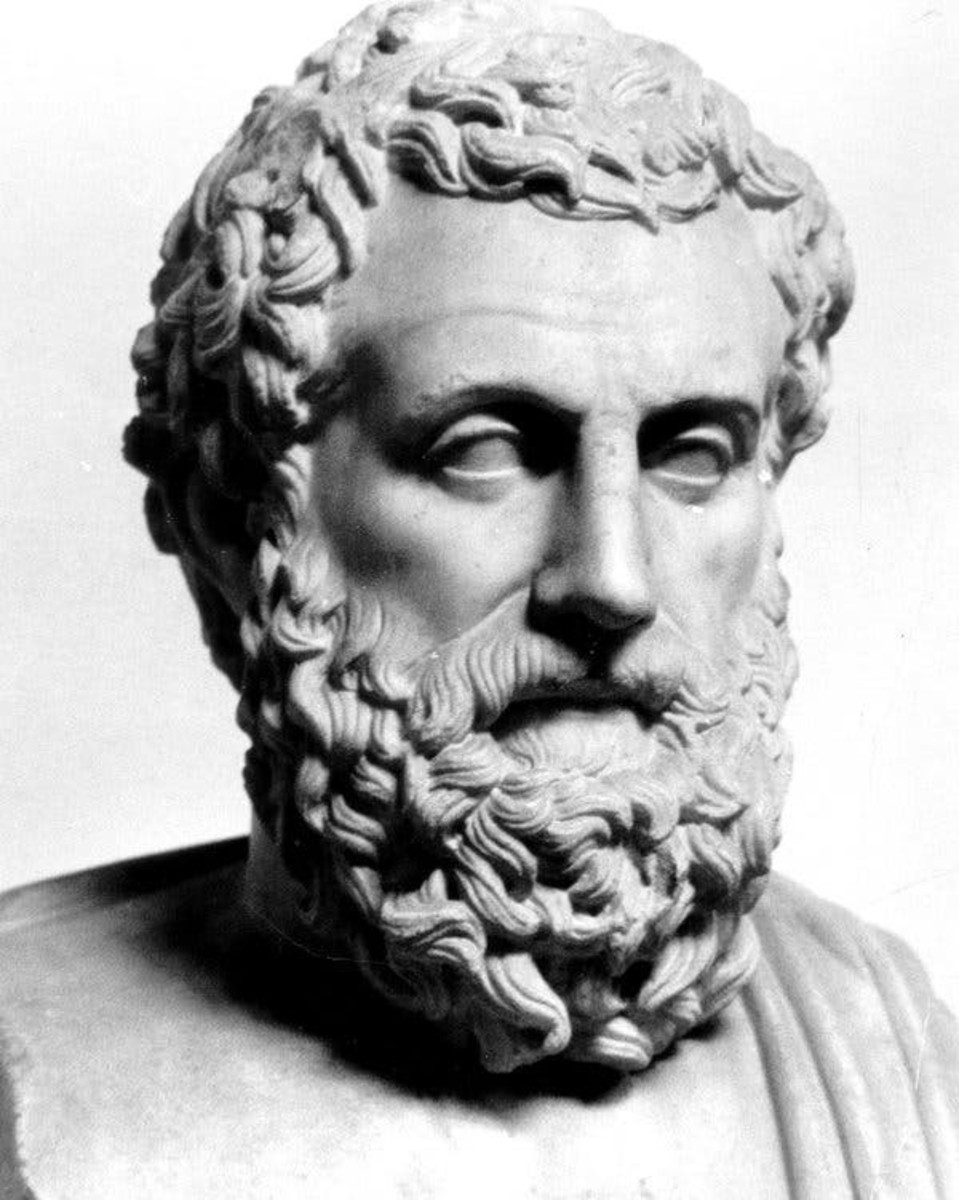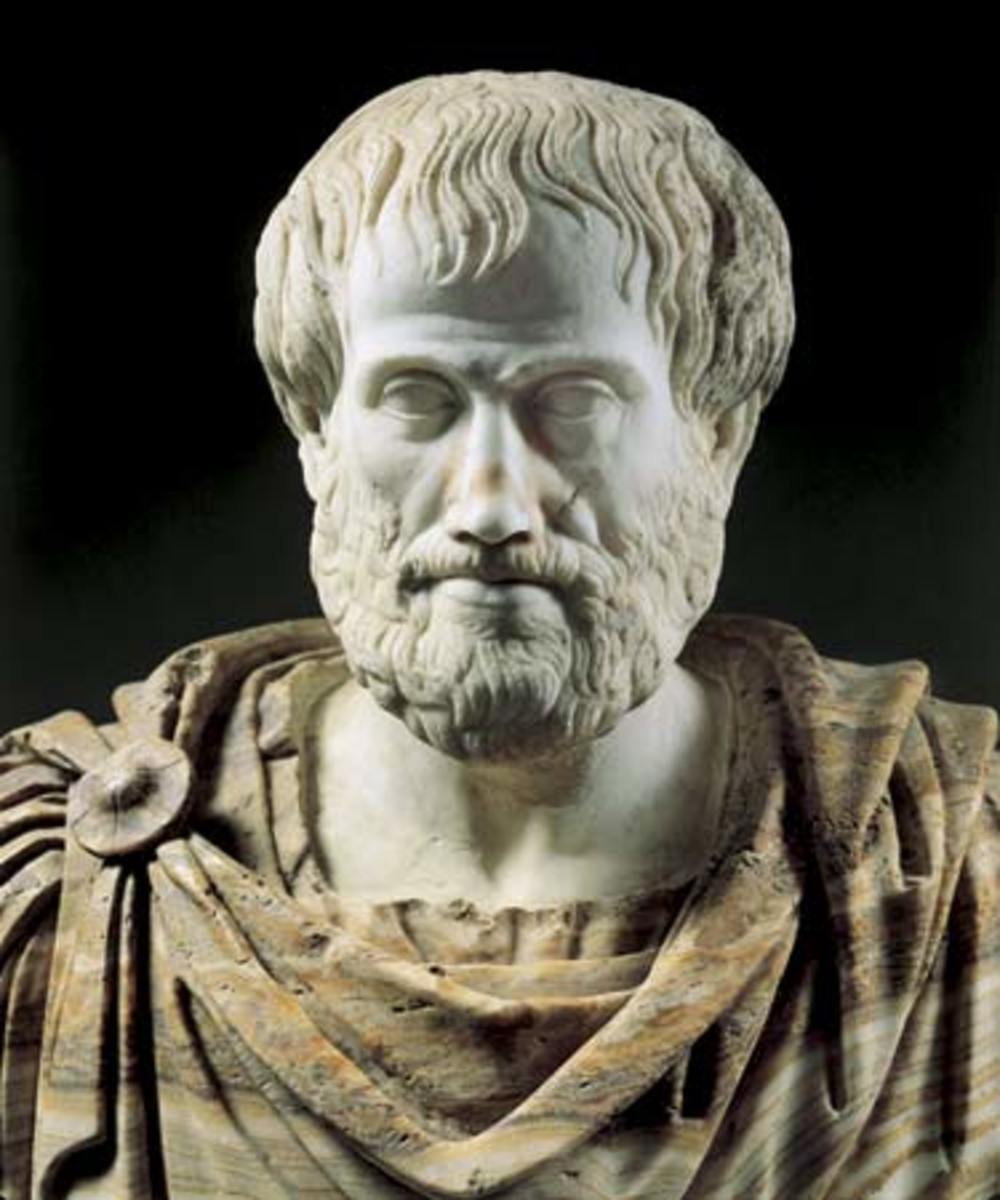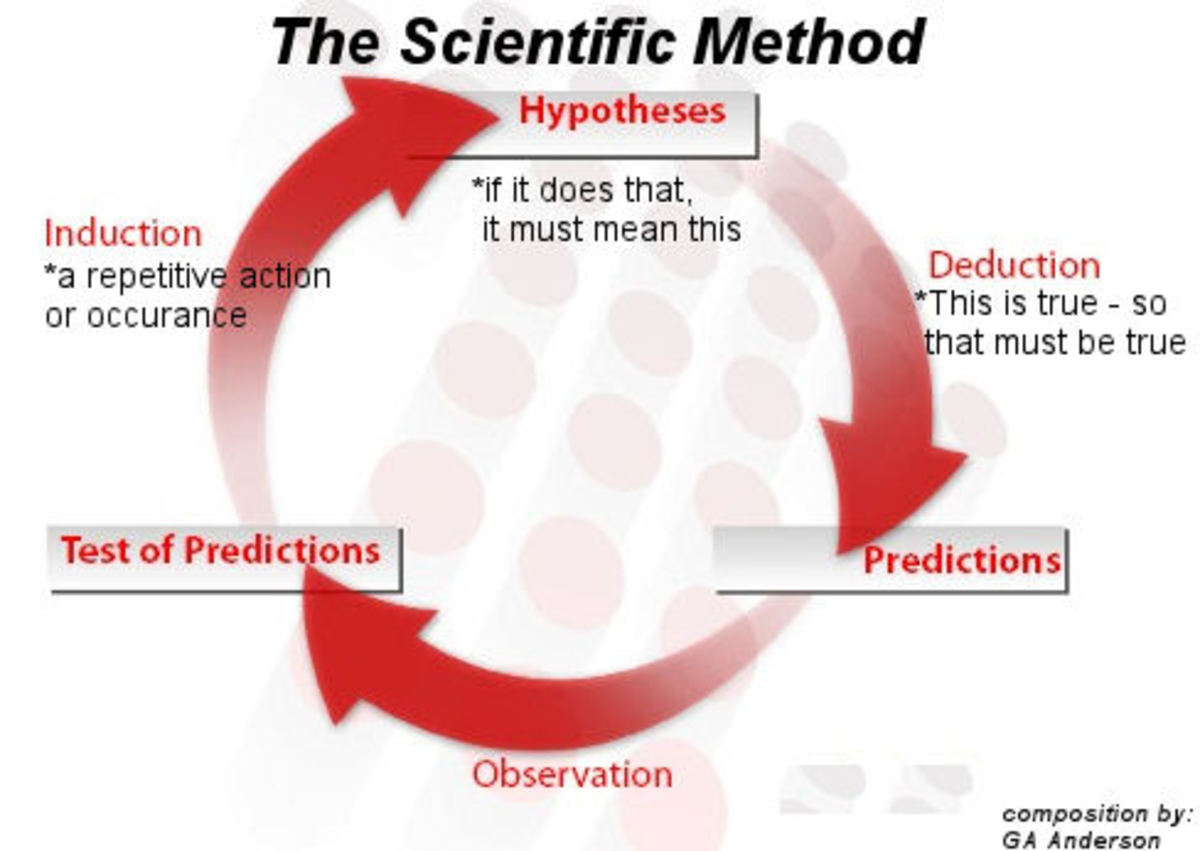Aristotle's Rhetoric and Dialectic - Concepts Still Relevant in Today's World
Aristotle, Philosopher and Scientist
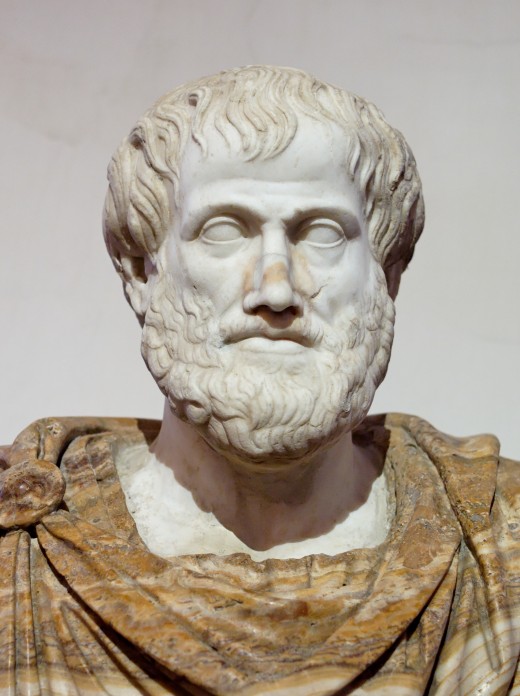
Aristotle's Background in Scholarship
Aristotle (384 B.C.- 322 B.C.) composed a body of work on defining rhetoric and its use which comes down to us only in part. “His combined works constitute a virtual encyclopedia of Greek knowledge. Aristotle was probably the last person to know everything there was to be known in his own time." (Neill, 1995). Some of his work is non-existent or fragmentary, but has been commented on by various ancient authors. The commentaries are the only means of knowing how extensive his work really was: in plilosophy, science, and the arts.
Aristotle was a student of Plato. Plato in several of his works defined what he thought was true or false rhetoric and was often critical of rhetoric as a means of discourse. With this background of skepticism and criticism from his pedagogue Plato, Aristotle began his studies and work. In the writings with which he begins “Rhetoric is the counterpart to the dialectic.” (Roberts, 1924).
Plato and Aristotle in Discussion

Aristotle's Rhetoric Defined
For a first study of rhetoric one must become familiar with terminology. Modern understanding of this terminology differs somewhat from what Aristotle outlined over two millennia ago. The Greeks were a politically active people who were accustomed to discussing important issues in public forums. So the term “rhetoric” arose to describe the tools and methods to actively persuade the listeners of the merits presented to them in political discussions. Modern society tends to treat any discussion in any field as a rhetorical argument. Aristotle believed that rhetoric could be systematically studied as a science which is the basis of his writings. The term "dialectic" meant the form in which a discussion would take. Two or more people have opposing views on some issue which can be debated to persuade an audience that their view is correct. When he uses the term counterpart what he means is that rhetoric and the dialectic are really closely related. There are common features which link them. Both deal with elements of induction and deduction. Both deal with the adversarial nature of the parties. Dialectics does not deal with subject matter relevant to a specific subject or science. Aristotle identifies three forms of appealing to an audience: logos, the use of reasoning to construct an argument; pathos, the use of an emotional argument; ethos, making an argument presented by a credible orator.
Division of Oratory According to Aristotle
Aristotle divides oratory into three branches: political, forensic, and ceremonial. A political argument is one in which the orator is trying to convince an action either for or against something. The forensic case is to defend of attack someone or something. The ceremonial form involves praising or censuring some one.
He identifies the five subject areas that political discussions fall into. “The main matters on which all men deliberate and on which political speakers make speeches are some five in number: ways and means, war and peace, national defense, imports and exports, and legislation.”
Forms of Government
A key point is presented where he discusses forms of government. In order to persuade an audience, one must understand the customs, norms, basic beliefs, of the form of government: democracy, monarchy, oligarchy, or aristocracy. The governmental form also has an influence on the practices these governments will pursue. Public policy actions lead to the realization of the ends sought out by the form of government implemented. For example, in a democracy freedom is a stated goal while in a monarchy preservation of the rights of the king is central in concept.
Aristotle and Alexander the Great
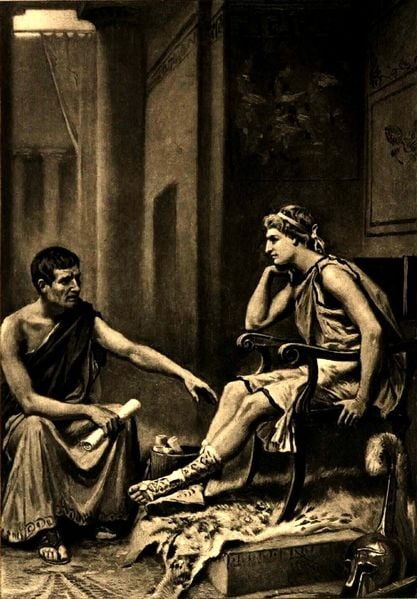
Aristotle’s Rhetoric in the Modern World
The stage is now set for a comparison of the Greek orator and our present-day legislatures. The Greeks met in their towns and villages. Most of the population would have little formal education. The Greek orator was praised by his fluency, stature, and ability to be heard. Today, persons who engage in public discourse and debate have a greater range of tools to incorporate to make their message known. Public relations firms are hired, professional speech writers are employed, and advertising is used to generate a positive public perception of their agenda. What remains the same between the Greek use of rhetoric and those used in political system today? A speaker today still uses the logos, pathos, and ethos introduced by Aristotle. Speakers will use arguments whether or not backed by logic to make their point, the logos. They evoke the credibility of the speaker argument, the ethos, to say that it is "the right thing to do because I can be trusted”. And pathos, appeal to emotion. Today, special interest groups exercise more power whereas the Greek were a very homogeneous people as many nations are much more culturally diverse. With complex issues, people will tend to identify with the side which identifies with them. Modern oratory is not really much different Ceremonial oratory is used in both praise and censure. Political argument is an every day occurrence. Forensic debate takes place is most legal systems.
The democratic form of government is one that tries to advance human rights applied universally. Attitudes change over the years, for example, as the United States emerged from isolationism to super power status American attitudes changed to be more active in advancing a system of values to other countries.
Subjects to political debate really have not changed much either. Governments still must deal with issues of revenues, budgets, war and peace taxes, etc. All of the elements of Aristotle’s rhetoric come into play. As the reader can see Aristotle’s writings on rhetoric and the dialectic have a great deal of relevance today.
Deliberations in Politics in the Modern Era

Sources and Recommendation for Future Study
Article sources and good starting places for further study.
Garver, Eugene. Aristotle’s Rhetoric. Chicago: The University of Chicago Press, 1994.
Neill, Alex; Aaron Ridley (1995). The Philosophy of Art: Readings Ancient and Modern. New York: Mc Graw Hill.
Plato, “Gorgias,” (approx. 360 B.C.) The Classical Library,
Roberts, W. Rhys (trans). (1924). Rhetorica: The Works of Aristotle, Vol.11. Oxford:
Clarendon Press. Rpt. 1954 in Aristotle, "Rhetoric" and "Poetics" (trans. Roberts & Ingram Bywater). New York: Modern Library.


